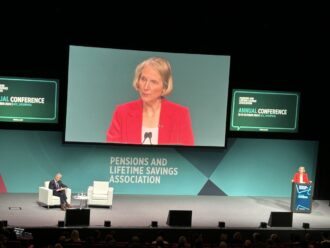The pension fund of the Royal Borough of Kensington and Chelsea decided not to push the button on exiting London CIV at its investment committee meeting in February.
This comes after the £800m fund threatened to quit the pooling arrangement, and now raises questions about whether the fund will leave the London’s LGPS pool as seemed to be the case a few weeks ago.
On the decision, the fund’s chair, councillor Quentin Marshall, said: “We continue to evaluate our position.”
Giving the timing, the prospect of Kensington and Chelsea leaving London CIV seems slim.
The scheme needs to give notice by the end of March for an official and orderly exit from the London pool, which will take place a year later. This now seems highly unlikely, as the next investment committee meeting for the fund is scheduled for late April – beyond the possible deadline.
A new meeting could be arranged before the March deadline expires, but no such gathering has thus far been placed and confirmed in the investment committee’s schedule.
This means that the February meeting was probably the final opportunity for the fund to rubber stamp an exit for an orderly departure next year. The February meeting was seen by many as a fait accompli in Kensington and Chelsea exiting London CIV.
Three options
That said, what Kensington and Chelsea does next will be vitally important in the wider pooling system – as three options are still open to the fund: a complete exit, staying in London CIV or moving to another pool.
The big source of division between the fund and the pool is that Kensington and Chelsea runs a predominantly passive portfolio while London CIV is actively focused.
Quentin Marshall alluded to this in January, when he said: “Kensington and Chelsea recognises that each LGPS fund has different circumstances and investment strategies and that, for many, the London CIV represents an attractive partner.”
A possible alternative therefore does exist within the LGPS pooling system, as Brunel Pension Partnership is passively focused, so would make a more suitable partner for Kensington and Chelsea. Such a move would be allowed under pooling rules.
Government pressure
Some sources close to the situation allege that the government may have leaned on the Kensington and Chelsea pension fund with the potential threat it could be taken over if it quit London CIV, as the government has the power to do so under pooling rules.
This has meant the fund has retreated from quitting the pooling system.
But the terminology used by Marshall on “evaluation” of the situation suggests things may not yet be completely done and dusted from Kensington and Chelsea’s perspective.
There is no doubt the government is a key player in all of this, as it has been keen to stress its own position is to focus on cementing pooling as the norm for local authority pension funds while achieving greater scale in the whole system.
In December, the chancellor, Jeremy Hunt, announced plans to consult on the guidance on pooling. What has happened with Kensington and Chelsea has only made this more important and timelier.
Faster pace
One suggestion put forward to portfolio institutional is that the government has taken note, and this could mean it increases pressure to pool assets faster.
As an example of the difference in pooling’s progress, to date, London CIV’s client funds hold £48bn in assets, of which 57% have been pooled.
Interestingly, Kensington and Chelsea has £800m in assets, but has not yet pooled any of them.
If the government insists on a more rapid rate of pooling, it could potentially create a new bout of discontentment, or at least a detailed debate about the whole principle of pooling.
Rumblings have emerged that other pension funds are unhappy with the pooling system, but it has been Kensington and Chelsea that has been the first to make this view official. Whether such funds will come out of the shadows – especially in the face of the government’s moves – remains to be seen.
But from the perspective of a pool, it is beneficial and needed that pooling progresses at a faster pace: a point that has been made by Chris Rule, chief executive of Local Pensions Partnership Investments, amongst others.
In this way, the Kensington and Chelsea situation could be just a rehearsal of things to come in the push and pull between pools and funds as the pooling process evolves and becomes more defined.
Aside from the pooling itself, one issue that has been a reoccurring theme of criticism from funds within London CIV has been a perceived regular turnover of staff within London’s pool.
Something the new chief executive of London CIV, Dean Bowden, will no doubt want to nip in the bud.





Comments